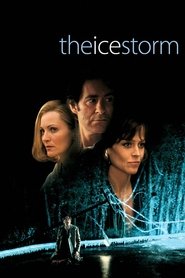A film giving a deep reading of superhero comics really lands differently in 2023, huh.
More seriously, it's interesting that the power of the film's final sequence originates in one of the key subliminal themes of the movie as a whole: what people do or do not know. It helps that much of the analysis regarding the original novel can apply to the screenplay. In 1998, Alexander Star observed in the LRB that "as the book proceeds, it develops a somewhat strained analogy between the ‘unfaithfulness’ of leaders like Nixon and the casual wife-swapping of the suburbs."
Incidentally, Running Mates (1992) also has a scene where someone has sex in a Nixon mask. That might have been just chance, but I don't think the "Who else would I be talking to?" was an accidental nod to Taxi Driver (1978).
Instead of a more conventional Hollywood production with a soundtrack of start-to-finish ‘70s hits, [Mychael] Danna’s predominant flutes suggest something more significant, even mystical happening onscreen; they avoid telegraphing the intended emotional response the viewer should have to each scene.[…]
The film contains an almost complete lack of lucid dialogue between characters—who communicate without saying anything meaningful, without listening to one another, and without saying what they really mean. The stifling, passive-aggressive ways in which characters fail to express how they feel—by talking to each other with their backs turned, from another room, or without looking at one another—reveals the film’s central theme: communication, or miscommunication. [Indeed,] Jake Gyllenhaal […] once said Lee is “fluent in the language of silence,” and this is evidenced by the several minutes of virtual silence at the end of The Ice Storm, which play almost free of any dialogue.
— Brian Eggert (Deep Focus Review)

